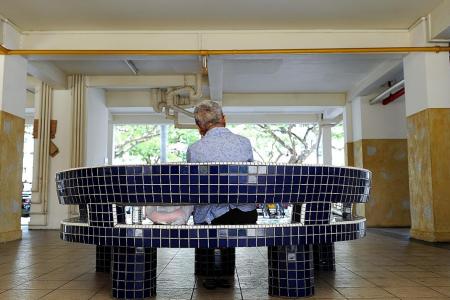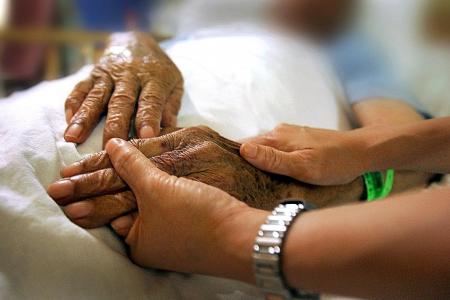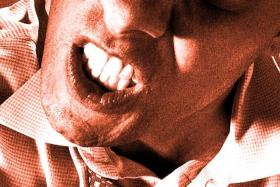Elderly abuse cases more than doubled in two years: MSF
Most victims know their abusers - often caregivers such as family members
A woman refused to take her father, who has Parkinson's disease, for his medical appointments.
She ignored doctors' advice to feed her elderly parents soft and healthy food and instead denied them access to proper nutrition, forcing them to eat bread for most meals. She also deprived them of money and warned them not to seek help.
Ms Shannen Ang, centre manager and senior counsellor at Sage Counselling Centre, gave these details of an elderly abuse case, a problem that has seen rising numbers in recent years.
Latest figures from the Ministry of Social and Family Development (MSF) show the number of such cases has more than doubled in two years.
In 2016, 55 cases of elderly abuse were reported to MSF. In 2017, they rose to 77 cases, then shot up to 126 cases last year.
Apart from physical abuse, victims could also face neglect as well as emotional, psychological and sexual abuse, said MSF.
Its spokesman told The New Paper: "The injuries arising from these types of abuse vary in nature and severity.
"Typically, injuries may involve bruises, cane marks, abrasions, hip fractures and bedsores due to neglect in care."
MSF noted that there has been no known fatality resulting from abuse of the elderly, which is defined as anyone aged at least 65.
The abusers are often caregivers. About 80 per cent of the victims know their abusers, who could be their children, step-children or spouse, said MSF.
Experts told TNP that abuse sometimes occur in the heat of the moment when caregivers are overwhelmed, frustrated or stressed-out.
On average, about 12 per cent of the cases investigated by MSF will also have a concurrent police investigation, said the spokesman.
"Typically, the police may be involved in cases where there are concerns over a criminal offence being committed against the victim, such as sexual or serious physical abuse," she added.
MSF figures show that sexual abuse of the elderly is rare, with no reported case in 2016 and one each in 2017 and 2018.
Ms Shailey Hingorani, head of advocacy and research at Aware, said: "Regardless of the age of the parties involved, sexual violence is more often perpetrated by someone known to the survivor than by a stranger."
Ms Ang told TNP that the elderly couple in her anecdote would be considered to have been emotionally abused and neglected. They were so terrified of their daughter that they had to discreetly contact her.
"It is sad to see elderly people in such abuse cases being so helpless, yet they can rely only on their children."
MacPherson MP Tin Pei Ling told TNP: "It is sad to hear about the rise in such cases, especially when it comes to the elderly who are vulnerable, not just because of their age but also their physical condition.
"It is even sadder when it is their family members, whom they love and trust, who abuse them."
Many cases of elderly abuses remain unreported.
Dr Ng Wai Chong, chief of clinical affairs of Tsao Foundation, said: "Some elders may not be aware that they are being abused, such as in cases of financial abuse.
"In another instance, victims may not want to speak up and report abuse for fear of loss of face. Even when it is discovered, the victim may not want decisive intervention, such as segregation from the abuser."
MSF said the rise in the number of cases could also be attributed to increased awareness about the issue.
"While there has been an increase in elder abuse cases, the absolute number continues to be relatively low," its spokesman said. "The increase in elder abuse cases handled by MSF does not necessarily indicate a growing occurrence of abuse, and may in part reflect the community's growing ability to identify cases of abuse and refer them for help."
Still, the consequences of elder abuse are dire, experts said.
Ms Evonne Lek, a family therapist, told TNP: "At their end of life, having to face such abuse at the hands of their children can lead to a steep psychological decline, and they may feel that life is not worth living."
Associate Professor Tan Ern Ser said: "(A rise in elder abuse cases) would undermine the family as an institution for mutual support and for inculcating respect and honour for elders in the family."
RELATED ARTICLE
Get The New Paper on your phone with the free TNP app. Download from the Apple App Store or Google Play Store now




